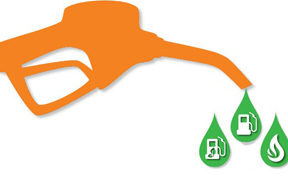Fleets Urged To Maintain Alt-Fuel Strategies
 Attendees at the NTEA Green Truck Summit were urged to "stay the course" and to remain committed to greening their fleets through the use of alternative fuels and other technologies, despite lower diesel prices.
Attendees at the NTEA Green Truck Summit were urged to "stay the course" and to remain committed to greening their fleets through the use of alternative fuels and other technologies, despite lower diesel prices.
Stephe Yborra, Director of Market Development, NGVAmerica, noted today’s oil prices are not sustainable and that diesel will once again climb. But for now falling diesel prices are "the elephant in the room" he said, noting it has "affected everybody." Yborra said there’s a game of political chicken taking place among oil-producing nations, with many continuing to produce oil even with the price per barrel at unsustainable levels.
The average peak cost of diesel in the U.S. in 2014 was $4.02 per gallon, which dropped to $2.83 where it is expected to remain for most of this year before climbing to about $3.24 per gallon in 2016, Yborra said.
"We know it’s going to go back up, we just don’t know how quickly or how far it’s going to go back up," he added.
He urged fleet managers to continue transitioning their fleets to cleaner-burning fuels. Natural gas production has increased and now averages 35 cents per gallon (before it’s compressed and delivered), meaning there is still a significant savings compared to diesel, Yborra said.
"There’s still a lot of room to build and to still give you great value as a fleet manager," he said, noting natural gas offers a three-to-one price advantage today as a raw commodity, but far from the six-to-one ratio it enjoyed about a year ago.
Representing the Electric Drive Transportation Association, Vice President Genevieve Cullen said there has also been growth in electric-drive vehicles. Battery costs have been halved in the past seven years, she noted, providing a stronger business case for electric-drive commercial vehicles. She pointed to UPS and Coca-Cola as private sector leaders in the segment.
Jennifer Weaver, OEM Outreach and Education Specialist with the National Biodiesel Board, said there has also been an increase in biodiesel uptake. The organization is projecting a market of four billion gallons per year by 2022, up from about 1.75 billion gallons today. That would replace 10 percent of the on-road diesel that’s consumed today, she noted. More than 90 percent of medium- and heavy-duty truck models now support the use of B20 biodiesel.
Tucker Perkins, Chief Business Development Officer with the Propane Education and Research Council said about 12,000 propane-powered vehicles were sold last year, down from 14,000 in 2013.
 Attendees at the NTEA Green Truck Summit were urged to "stay the course" and to remain committed to greening their fleets through the use of alternative fuels and other technologies, despite lower diesel prices.
Attendees at the NTEA Green Truck Summit were urged to "stay the course" and to remain committed to greening their fleets through the use of alternative fuels and other technologies, despite lower diesel prices.